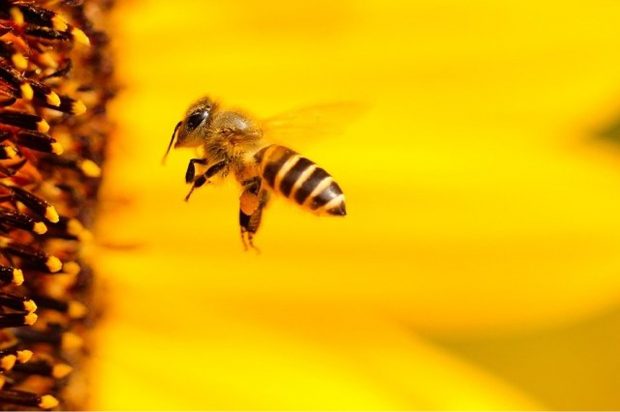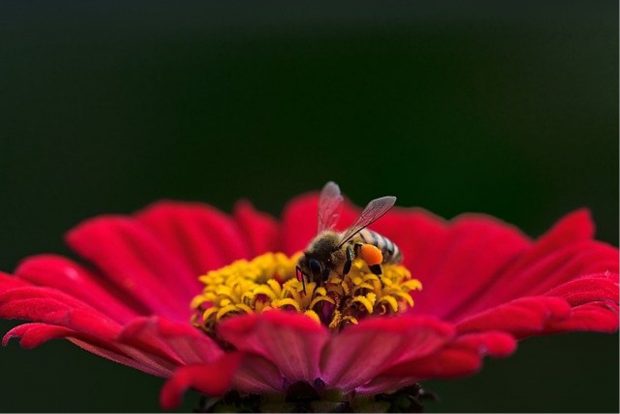Bees are important for beekeeping, and beekeeping is an excellent way to teach children about the importance of bees. Our society has a lot of misconceptions about beekeeping in general, but these can be easily cleared up with education. There’s no need to fear when you know the facts! In this article, we’ll discuss how to educate kids on beekeeping and why it’s such an important part of life (and death).

What are bees and why do they matter to us?
Bees are flying insects that pollinate plants. If you have ever eaten an apple or a strawberry, then you’ve been to thank for it! When bees fly from flower to flower gathering pollen, they help the plant produce fruit and vegetables. But did you know?
Bees also make the food we can eat! Honey is bee vomit (technically called honeydew) which contains nectar from flowers. Over time this mixture of bee saliva and nectar has turned into delicious honey. Without bees our planet would be full of empty fields with no fruit on trees – it’s really quite sad if you think about what life was like before humans started keeping bees around 4000 years ago in China!
How can you get your children into beekeeping?
- Get them a bee suit and let them help with the bee yard! Children love to watch bees fly around in their beehives and it’s easy enough that they won’t need any assistance from an adult.
- Take some time every day to teach about different flowers or plants by reading books together such as The Botany Coloring Book (A Child’s Introduction to Flowers, Plants, Fruits & Vegetables). This will allow kids to learn more about what kind of beekeeper they want to be when they grow up!
- If you want to go beekeeping with your children, it’s best to start simple. Many beekeepers recommend the Warre hive which is also called a “People’s Hive” because anyone can use it! Bees are very docile creatures and hardly ever sting people who respect them by wearing protective beekeeping equipment while tending their bee yard. If all members of the home follow proper bee-safety procedures then beekeeping should be just fine for kids of any age including toddlers!
How can we teach children about the importance of bees?
It’s important to teach kids beekeeping from an early age. Many people think that beekeeping is intimidating, but it doesn’t have to be! In fact, beekeeping can easily be a family hobby for all members of the home including children and grandparents alike. Children learn many valuable skills when they start beekeeping such as:
- How honeybees build their hive in nature;
- What flowers bees visit and what kind of pollen each flower produces (some produce more nectar than others);
- Which plants need pollination and which do not;
Ways that you can help save or protect honeybees
Plant bee-friendly flowers! Bees need to eat too, and they love a wide variety of different types of flowers. The more bee-friendly plants you have in your yard the better chance that your bee colony will thrive.
Avoid using pesticides on your garden or lawn – many chemical sprays are harmful not only to bees but also to other insects such as butterflies and ladybugs which should be treated with respect because they can also help keep pests under control naturally without any chemicals at all!
Support local beekeepers by attending their next honey festival or finding out when their open house is so you can see how beekeeping works first hand! Most beekeepers love meeting new people who are interested in learning about including children. Some even offer beekeeping workshops for kids and their parents!
If you are in bee country (the beekeeper will know which regions have the most bee activity) then try to plant bee-friendly flowers that bloom during every season so bees always have something to eat. Bees work hard all year long, even when it’s cold outside or raining cats and dogs – they still need food so make sure your yard is bee-friendly at any time of the year!
A brief history of how important bees have been in our society
- Beekeeping was first documented in China around 4000 BC.
- The Egyptians were also beekeepers and they called bee colonies “the tears of Re” because bees symbolized a connection between heaven and earth.
- Aristotle wrote about beehives over 2000 years ago which is still valuable information today! Much of what we know about honeybees come from his work.
- In 1887, the USDA started importing queens with mites inside their abdomens so that beekeepers could have pest problems all year long instead of just during wintertime – most beekeepers think this was a bad idea as it spread diseases throughout US bee colonies quickly.
In this blog post, we have explored how to teach children about bees and why they are so important. We also shared some ways that you can help save or protect honeybees from extinction by getting your kids involved with beekeeping, planting a pollinator garden in your yard, or buying local honey products!




